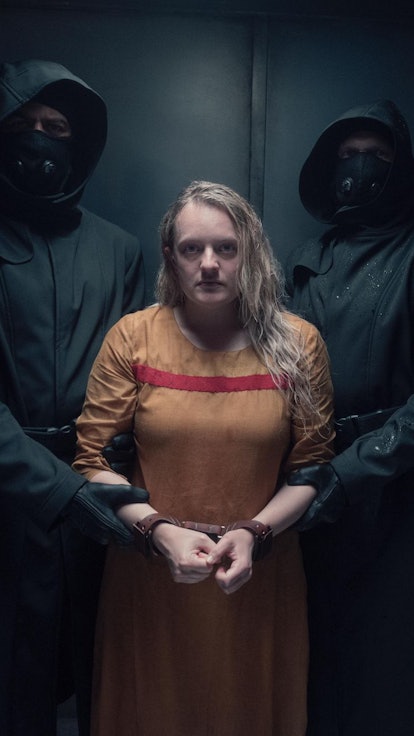Now that The Handmaid’s Tale is back for Season 4 (praise be), fans will finally get to see the show move into new territory. Some of these developments come from The Testaments, author Margaret Atwood’s 2019 sequel (which was also optioned for Hulu). Without giving away the big reveal of that novel, let’s just say that the book casts a whole new light on some events of The Handmaid’s Tale, and makes you reconsider Aunt Lydia’s motivations.
So imagine our delight when we started watching the first few episodes of Season 4 and noticed areas of overlap:
- The issue of mistreatment of child brides, which had been touched upon before with Eden but was more developed with new character Esther Keyes.
- The isolation cells, meant to wear down a prisoner’s resistance.
- The gossip and blackmail schemes that create certain alliances.
- The revelations about the power structure within Gilead, and the uncomfortable symbiotic relationship among the Commanders and the Aunts.
All powerful stuff. But its inclusion in this season makes us wonder whether The Testaments material is only there to help widen the scope of The Handmaid’s Tale, to set the stage for a Testaments spinoff? Can the shows co-exist, given the non-linear nature of the source material?
To resolve that issue (and more), The Dipp talked to executive producer Warren Littlefield.
The Dipp: It wasn’t entirely clear how much of The Testaments was going to be either the basis of a new show or just folded into the current series.
Warren Littlefield: Well, we’re laying the groundwork. I think ultimately, when we complete our journey with The Handmaid’s Tale, that will feel like a complete journey, and then The Testaments will take place some 15 years later. As Margaret Atwood was writing The Testaments, she was also engaging with [showrunner] Bruce Miller and saying, “Here are some things that are important to me [to incorporate now].”
